And so we bid adieu to the Year of the Rabbit – a wild ride of high highs and low lows. Yet, the show must go on, and that means enjoying it in the way we know best – through good food and plenty of drink.
Here’s our A to Z recap of some of the major restaurants and bars that swung their doors wide open and bunny-hopped through into the Year of the Dragon.
See Part I here, Part 2 here, Part 3 here, Part 5 here, Part 6 here, and Part 7 here.
La Siesta
La Siesta is a tapas bar straight out of southern Spain by Isaac Ye (Tres Perros) and Chef Sergio Moreno (previously of Commune Social) – who is taking it back to his Andalusian roots, cooking the food he knows and loves.

Image by Sophie Steiner/That’s
La Siesta isn’t a restaurant per se, but rather a casual ‘bar de tapas’ – an everyday pre-dinner hangout for an aperitivo cocktail and snack.
That’s because dinner for the Spanish takes place around 11pm, with the hours preceding that spent sipping jerez, sharing plates of tapas and catching up on the latest comings and goings with whoever happens to be passing by – the exact vibe emulated at La Siesta.

Image by Sophie Steiner/That’s
La Siesta is the bustling neighborhood tapas bar found on every street corner in Spain, just transplanted onto our very own Shanxi Bei Lu.
It’s a taste of Spanish hospitality that Shanghai’s been craving.
Read a full review here.
La Siesta, 600 Shanxi Bei Lu, by Xinzha Lu 陕西北路600号,近新闸路.
La Social
After a year-and-a-half hiatus, Latin American hotspot La Social has made a comeback, this time in the old Mosto space on Shanxi Lu, with its opening night having taken place on – what better date – December 31.

Image by Sophie Steiner/That’s
The only major change comes in the form of an added bonus Colombian comfort eats dinner menu designed by Chef Richard Caba, making it one of the only places in the city offering South Americans a taste of home.
Aside from that, it still boasts the same late-night cumbia-bolero-salsa-reggaeton-Latin pop vibes of a South American speakeasy nightclub, the “original inspiration behind La Social,” according to owner Alex Molina (Moka Bros, Mosto Beijing).

Image by Sophie Steiner/That’s
Despite the new digs, La Social remains first and foremost a bar, after all, so expect to sweat through those calorific arepas while shaking that culo to everything from Shakira to Daddy Yankee to Bad Bunny into the wee hours of the morning.
Read a full review here.
La Social, 5/F, 90 Shaanxi Nan Lu, by Julu Lu, 陕西南路90号五楼,近巨鹿路.
Ling Long
Ling Long, aligning with the Waldorf Astoria Shanghai on the Bund’s ethos and timeless style, fits just 30 people (across eight tables and two private rooms) with one seating per day, presenting diners with an ever-changing, whimsical set menu focused around the concept of umami – or xian in Chinese – with lauded Chef Jason Liu himself the mastermind behind each and every dish.
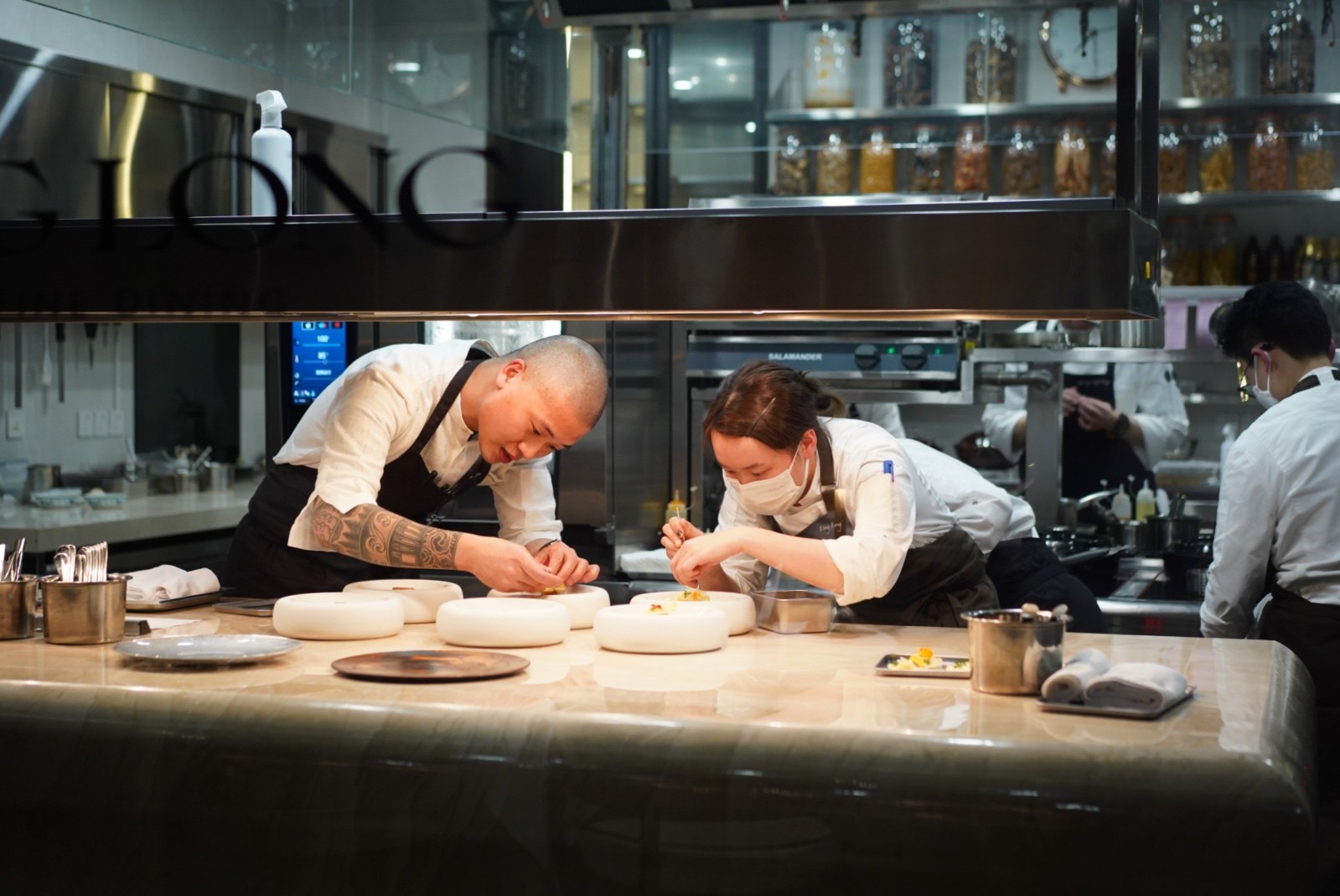
Image by Sophie Steiner/That’s
Chef Jason brings his Beijing experience (opening Ling Long Beijing, No. 77 restaurant on Asia’s 50 Best list) and combines it with uncommon, homegrown ingredients, Middle Kingdom tastes and a thoughtful twist.
Our first impression of Ling Long: how completely divergent it is compared with other current Chinese fine dining establishments.
Yes, there are white tablecloths, avant-garde Chinese art-decorated walls in crimson and onyx hues, and gloved service coupled with both verbal and cardstock introductions for each course.
But the meal follows a playful path that leads diners further down the (white) rabbit hole.

Image by Sophie Steiner/That’s
It is one that weaves through pairings, like flash-fried Taizhou rockfish in a lip-tingling mala Sichuan broth with spontaneously-fermented Cantillon gueuze – a union that is separate from a late-night Chengdu curbside street snack, but somehow very much a part of it.
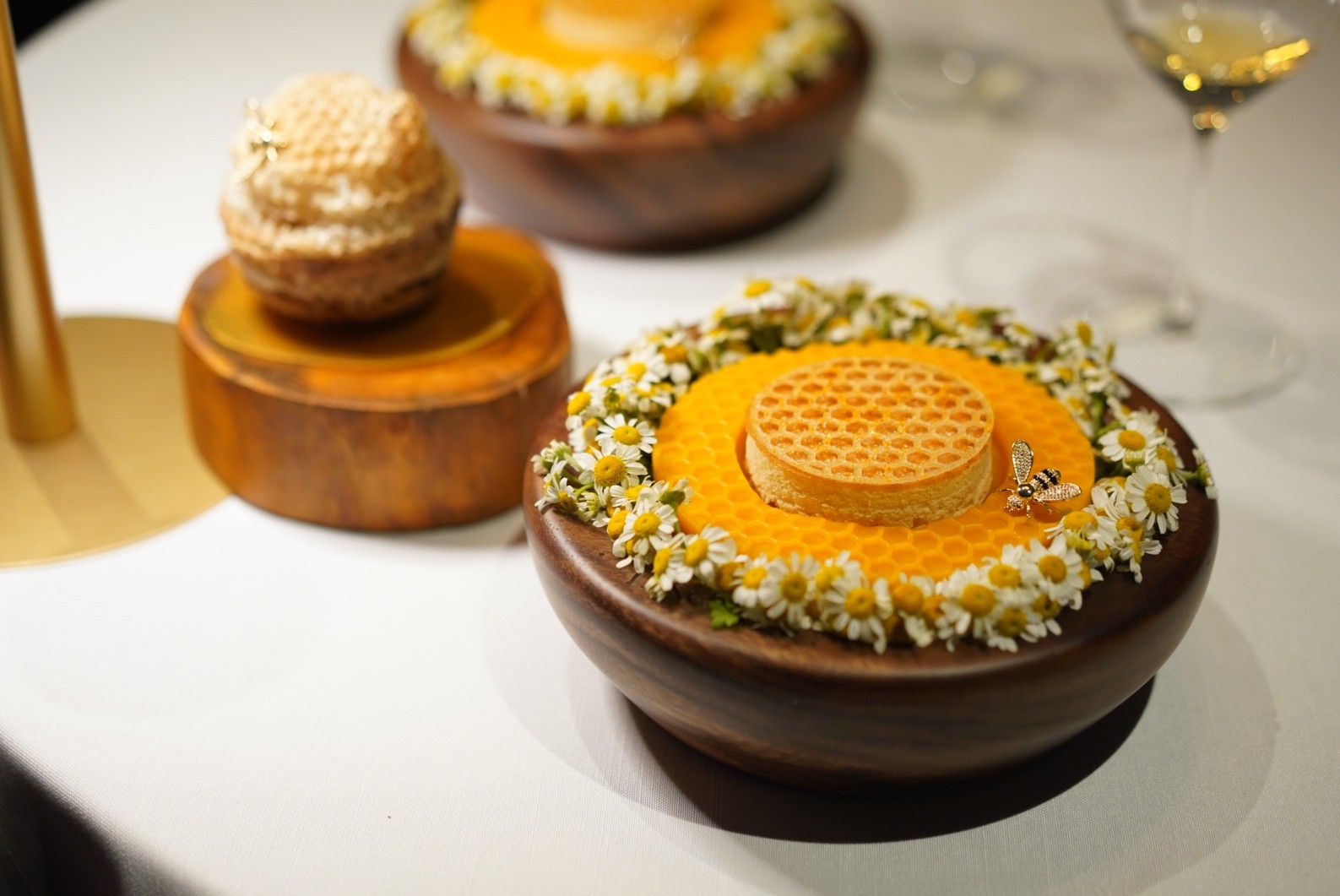
Image by Sophie Steiner/That’s
By the end of the meal, you’re not even phased by the theatrics – the level of tongue-in-cheek eccentrics having built, each course goofier than the last.
So no – it’s not the “stuffy” hotel restaurant Chinese fine dining experience you’re expecting.
Read a full review here.
Ling Long, 2 Zhongshan Dong Yi Lu, by Guangdong Lu, 中山东一路2号外滩华尔道夫酒店,近广东路.
Ma-ia-ki
Ma-ia-ki is the newest in Shanghai’s long lineup of izakayas, brought to us by the renowned Vos Families Food & Beverage Group (Vinism, SOiF, the Warehouse, Suzie, Suzie’s Garden) and located in Surpass Court on Yongjia Lu.
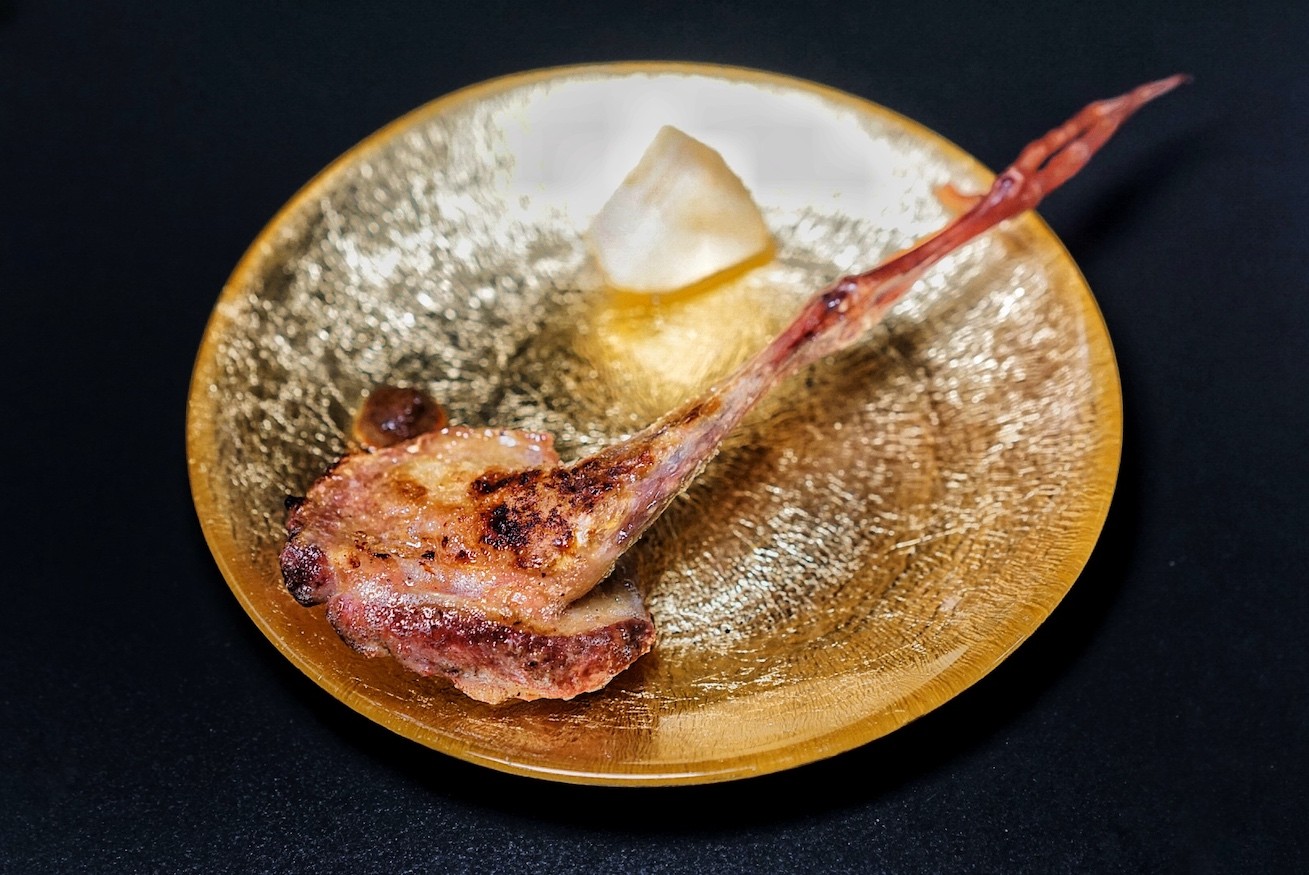
Image by Sophie Steiner/That’s
The space is sleek and dark, with 16 seats circumnavigating the restaurant’s focal point – a backlit binchotan Japanese charcoal grill; one that brings more heat and less smoke, so diners can enjoy the grill master at work without smelling like they just left a bonfire.
More than just a yakitori that customarily focuses on chicken, Ma-ia-ki specializes first and foremost in yakihato, or open-fire grilled pigeon, along with more traditional skewers, sashimi, small plates and sides.

Image by Sophie Steiner/That’s
The space is shadowy and intimate, yet they bump an upbeat playlist, encouraging guests to remain lively and continue drinking – an equally important partner to the food.
Read a full review here.
ma-ia-ki, 1/F, Bldg 2, 570 Yongjia Lu, by Yueyang Lu 永嘉路570号2栋1楼,近岳阳路.
Maolago Bitter
The second location of Maolago – a sanctuary to all things Guizhou comfort food, with an emphasis on Miao cooking heritage – opened on Julu Lu, just above Pass Residence, yet another outpost from Oha Group (Oha Eatery, Dead Poet, Bar No. 3).
READ MORE: Maolago – A Sanctuary of Guizhou Comfort Food
But this is not the customary copy-and-paste duplicate you might have been expecting. In fact, it levels up on Guizhou flavors, building on the boldly sour tastes of the region with an added layer of bitter complexity.
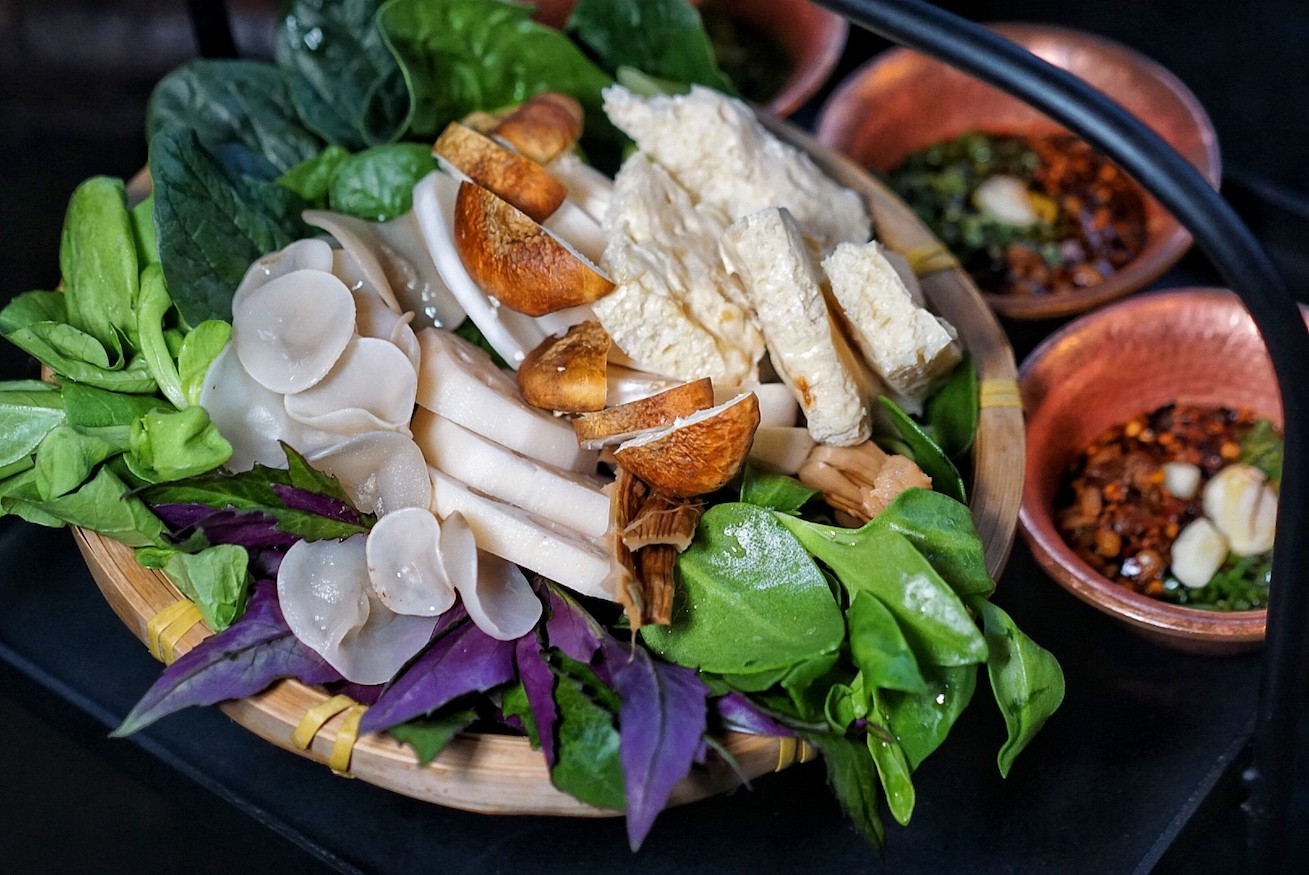 Image by Sophie Steiner/That’s
Image by Sophie Steiner/That’s
While the venue does offer many of the most popular items from the original Fuxing location, diners looking for bona fide Guizhou cuisine with a hit of ingenuity should make their way over to the Julu Lu spot.
Here, herbs, spices, veggies, cured meats and the restaurant’s signature dish’s fermented master stock are sourced directly from boutique farmers and suppliers in Guizhou – and shipped every other day to Shanghai for maximum freshness and authenticity of taste.
 Image by Sophie Steiner/That’s
Image by Sophie Steiner/That’s
And Maolago is just that – a refined representation of the provincial flavors with a strong focus on honoring local ingredients.
Whimsy is definitely still a defining factor – especially in the small plates – but there is a streak of restraint that makes each dish enjoyable to a broader audience, not just those with a deep understanding of Guizhou’s vegetation ecosystem.
Read a full review here.
Maolago, 2/F, 318 Julu Lu, by Shaanxi Nan Lu, 巨鹿路318号2号楼, 近陕西南路.
Miyaraku
A nondescript, walled entrance separates Miyaraku from the hustle and bustle of Changle Lu, the sliding door opening to reveal a Japanese oasis, seemingly a world away from the street lying just outside its borders.
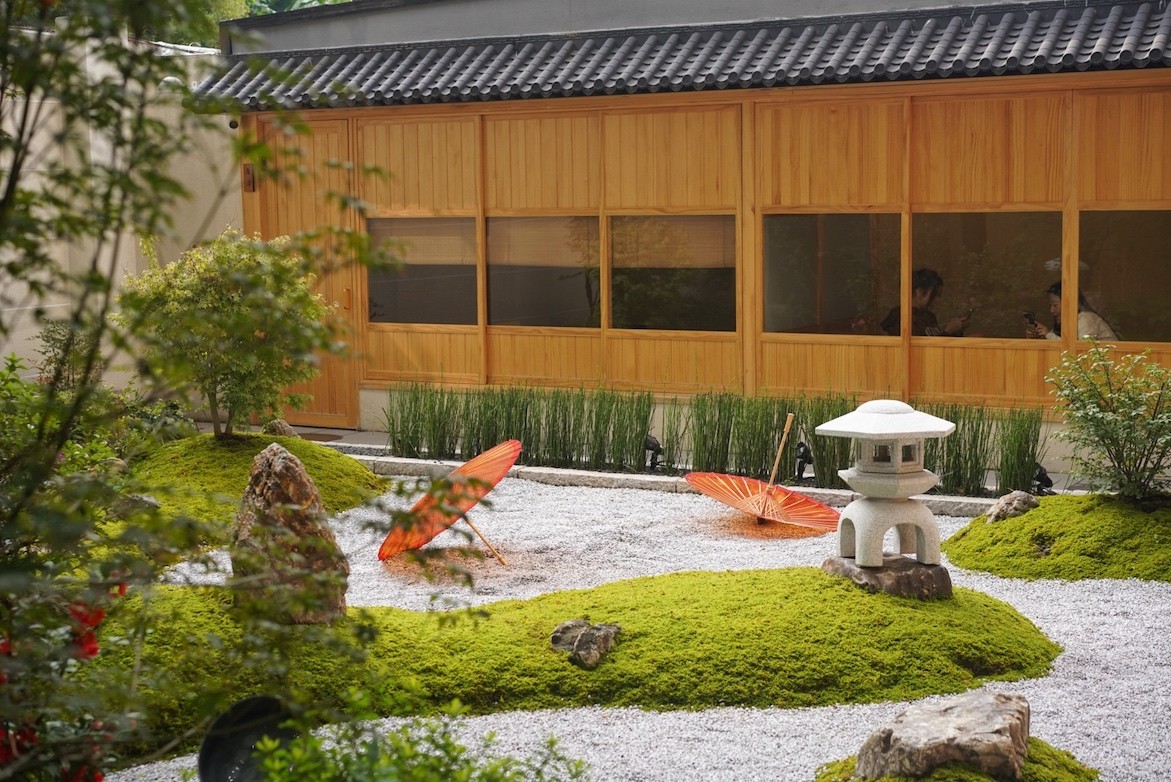
Image by Sophie Steiner/That’s
Guests first enter a traditional Japanese garden, highlighting the natural landscape; flowering shrubs and evergreen plants grow amongst white gravel, a path of stones leading diners past ornamental paper umbrellas and timeworn pagoda statues into the Kyoto retreat of a venue.
The menu is designed and curated by famed Japanese chef Kanayi Saburo and owner Quan Taishem, who offer three omakase-meets-kaiseki style set menus – for RMB980, RMB1,380, and RMB1,980 – available at both lunch and dinner time.

Image by Sophie Steiner/That’s
The minimalist Japanese design, relaxing music, and sun-soaked rooms – most of which open out into the garden – culminate in a Japanese sanctuary, one that allows diners to escape Shanghai for the humbler times of yesteryear Kyoto.
Read a full review here.
Miyaraku, 920 Changle Lu, by Changshu Lu, 长乐路920号, 近常熟路.
Mozzarelle e Vino
Opening in the Henghsan 8 lifestyle development, Mozzarella e Vino is a neighborhood European lounge focused on – as the name suggests – all things cheese and wine.
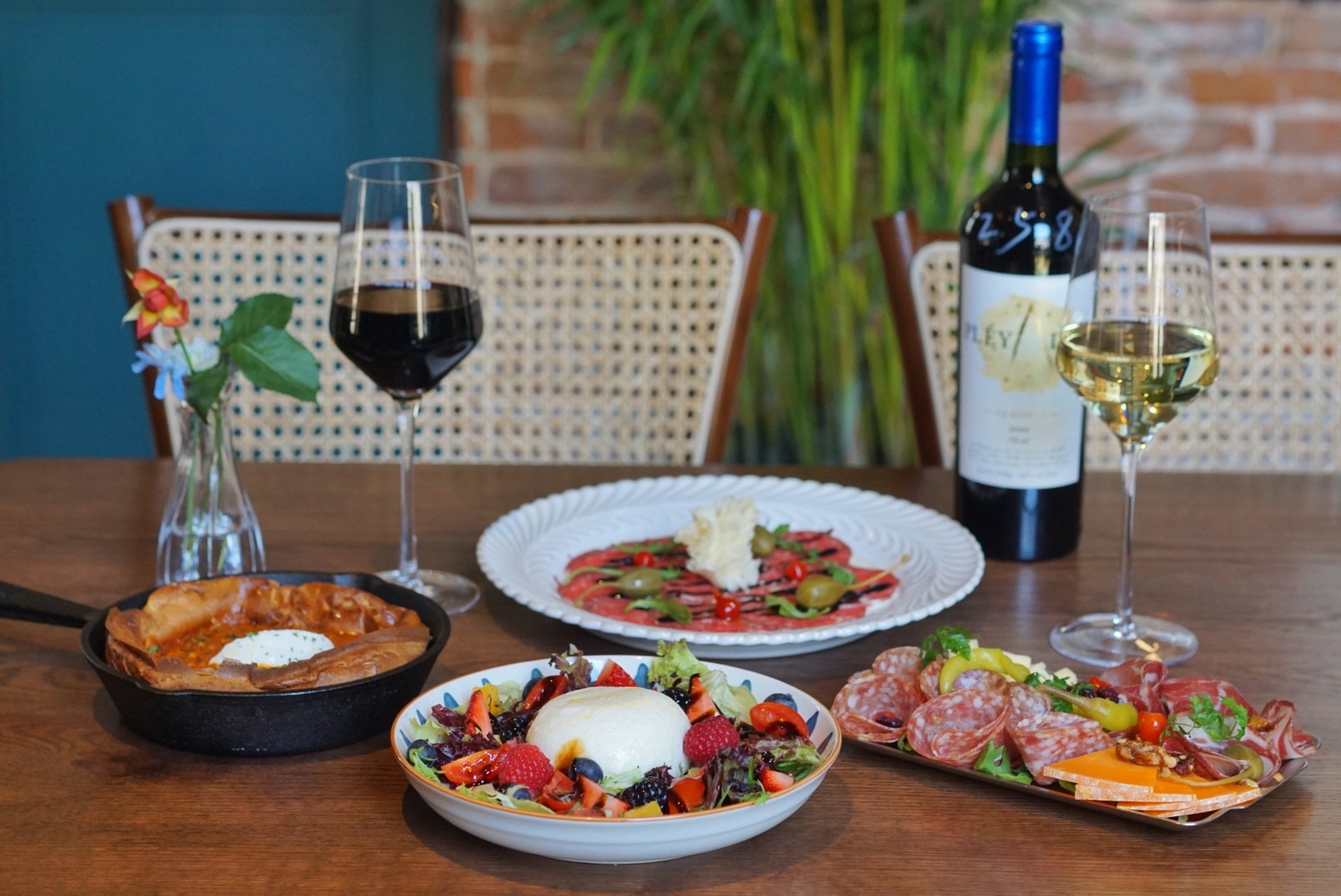
Image by Sophie Steiner/That’s
Behind the new spot is Dr. Cheese, a local Chinese cheese brand venturing for the first time into the restaurant space.
The company launched in 2019, and is led by Jason Chen, the previous GM of DMK – a large German dairy brand – with a focus on importing cheese from Holland.
In short, Mozzarella e Vino is the place for cheese lovers, by cheese lovers.
On the wine front, there are more than 100 labels to choose from, predominantly hailing from Italy and France, plus 14 wines by the glass.
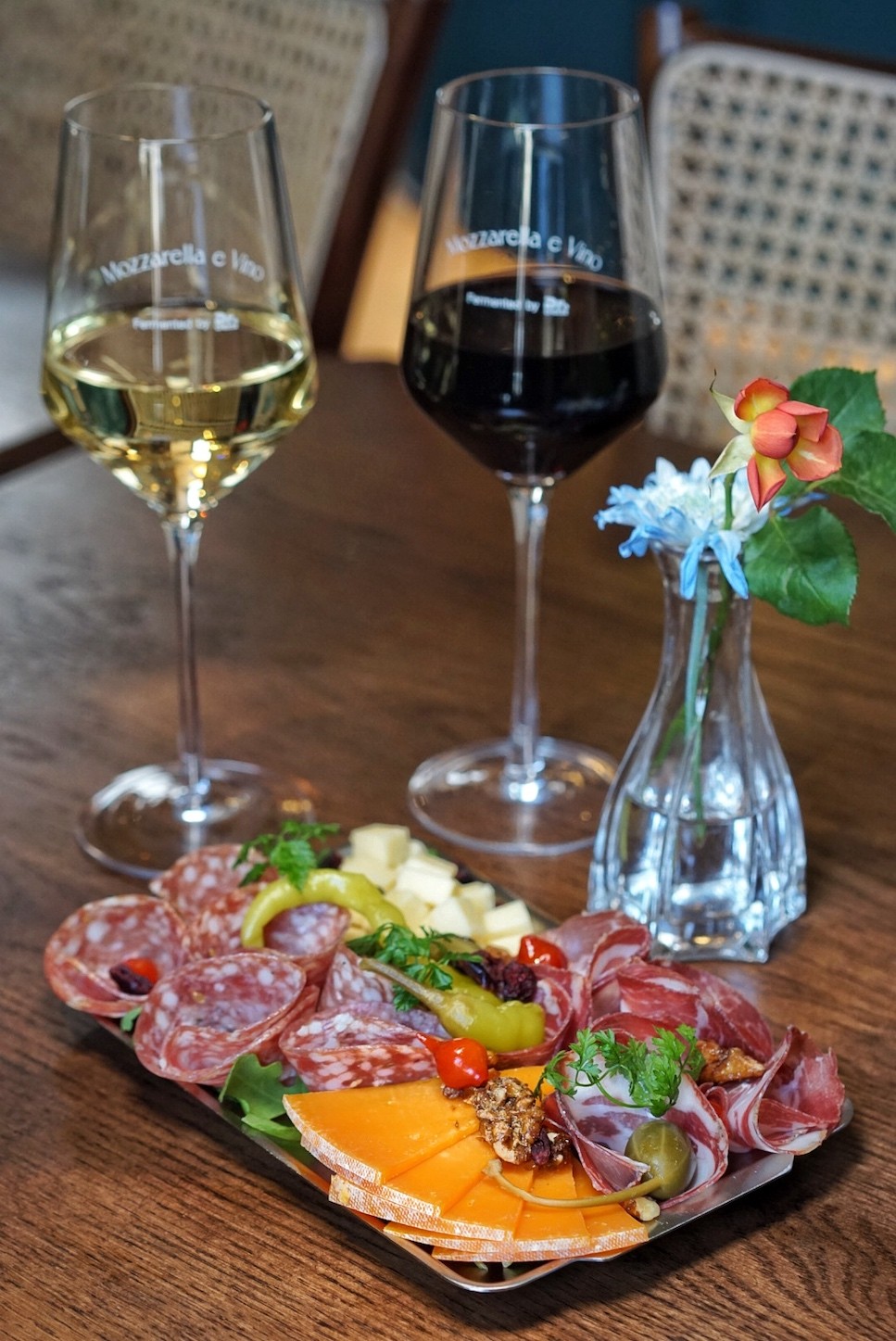
Image by Sophie Steiner/That’s
The restaurant’s bread and butter are their Charcuterie Boards (RMB128/small, RMB198/large), with preset selections of cheese, cold cuts, pickles, mixed nuts and dried fruits.
With offerings like Insigny Mimolette, Dutch Gouda and British salami, and prosciutto, it’s hard to pass these up, especially with a glass of wine in hand.
The cheese counter also displays the likes of 60 imported and local cheeses, including Brie, Manchego, Emmental and Comté – to name a few – as well as 20 different cold cut selections.
While the wall-length wine display cellar encourages diners to learn about pairings through trial (without the risk of error).
Read a full review here.
Mozzarella e Vino, #101A, Bldg 6, 8 Hengshan Lu, by Wulumuqi Lu, 衡山路8号锦和越界6号楼101A单元,近乌鲁木齐路
Read More…
Year of the Rabbit Recap: New Shanghai F&B – Part 1

Year of the Rabbit Recap: New Shanghai F&B – Part 2

Year of the Rabbit Recap: New Shanghai F&B – Part 3

Year of the Rabbit Recap: New Shanghai F&B – Part 5

Year of the Rabbit Recap: New Shanghai F&B – Part 6

Year of the Rabbit Recap: New Shanghai F&B – Part 7

To read the full Year of the Rabbit New Restaurant & Bar Openings Recap click here or scan the QR code:

>>> Read full article>>>
Copyright for syndicated content belongs to the linked Source : ThatsMags – https://www.thatsmags.com/china/post/37016/year-of-the-rabbit-recap-new-restaurant-bar-openings-l-m










